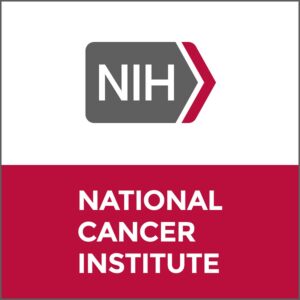
Thanks to the comprehensive and ongoing communications between the ACPMP Research Foundation and the NCI about the need for greater inclusion of appendix cancer patients in clinical research, the NCI reached out to the ACPMP Research Foundation to advise that appendix cancer patients interested in potential participation in this trial may have their tumor tissue tested to determine whether their tumor cells express mesothelin. Those patients with tumors for which cells express at least 20% mesothelin, and that otherwise satisfy the eligibility criteria, may participate in the first part (dose-escalation) of this trial to test use of a mesothelin-targeted investigational drug in combination with a drug (tofacitinib) that has been approved by FDA for other indications. Moreover, should at least half of the number of appendix-cancer patients whose tumors are tested have tumor cells that express at least 20% mesothelin, NCI plans to seek to amend the clinical trial protocol to include appendix cancer patients in the second phase of this trial (i.e., the dose escalation phase).
This is important research because, to date, it is unknown whether appendiceal tumors express mesothelin. Other tumor types, including, for example, pancreatic, do but this is an unanswered question for appendix cancer. This NCI trial, however, offers a way to help answer that important scientific question. With patient consent, NCI will test patient’s archived tissue (or, if unavailable, fresh biopsy tissue) to determine whether their tumor cells express mesothelin and, if so, the percentage.
This Phase 1 trial consists of two parts: (1) a dose-escalation part; and (2) a dose-expansion part. This two-part approach to a single clinical trial is becoming increasingly common. The first phase, the dose-escalation phase of this trial, is the one where a patient with any kind of solid tumor, including appendiceal, for which at least 20% of tumor cells express the protein mesothelin, may participate. The primary focus of this dose-escalation part of the study is to determine the tolerable and safe dose of the investigational drug in combination with tofacitinib.
Participation in the second part of this Phase 1 trial, the dose-expansion, is limited currently to specific disease cohorts: patients with pancreatic adenocarcinoma and patients with extrahepatic cholangiocarcinoma. Patients with those tumor types are able to continue the trial at the optimal dose established in Part 1 of the trial. If, however, at least 50% of appendix cancer patients participating in the first part of this trial, the dose-escalation, are found to have tumors with cells expressing at least 20% of mesothelin, then NCI will seek to amend the protocol to permit a cohort of appendix cancer patients to also participate in the second part of this trial (i.e., dose-expansion phase). Such participation would allow for further study of whether a mesothelin-targeted drug may hold therapeutic promise in the treatment of appendix cancer and thus provide another area of significant R&D interest going forward.
If you are interested in discussing or obtaining additional information about this trial, please contact Deborah Shelton, ACPMP Medical Liaison.